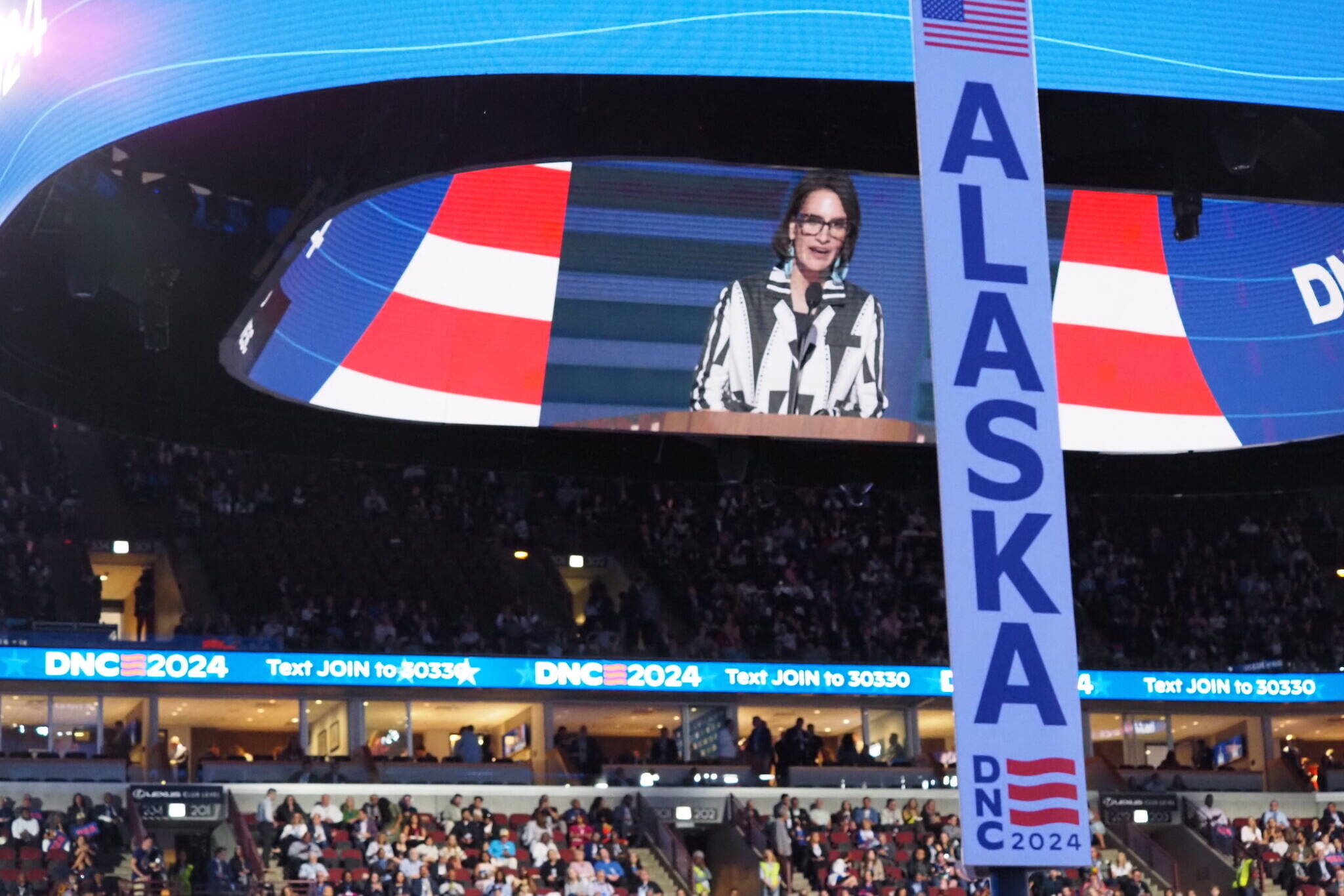The Alaska Democratic Party sued the Alaska Division of Elections on Wednesday, seeking a state court injunction that would remove Eric Hafner from the state’s U.S. House election ballots.
Hafner, running as a Democrat, was the sixth-place finisher in the state’s August primary election but made it into the state’s “final four” November election after two higher-finishing Republicans withdrew.
Hafner has never lived in Alaska and is in federal prison in New York state, serving a 20-year sentence after threatening public officials in New Jersey.
“This is about someone who is incarcerated, an unqualified candidate that shouldn’t have been moved onto the ballot,” said Lindsay Kavanaugh, executive director of the Alaska Democratic Party.
Patty Sullivan, a spokesperson for the Alaska Department of Law, said by email that “Law is reviewing the complaint and will respond on behalf of the Division of Elections, which followed Alaska law and the U.S. Constitution when it put Mr. Hafner on the general election ballot.”
In the lawsuit, filed in Anchorage Superior Court, the Alaska Democratic Party argues that Hafner is ineligible because he doesn’t meet the U.S. Constitution’s residency clause for U.S. House candidates.
That clause states in part that a House candidate must be, “when elected,” an “inhabitant” of the state that contains the relevant House district.
Hafner isn’t scheduled for release from federal prison until 2036 at the earliest, according to federal records.
To fix the problem, the party suggests running the election with only three candidates, or by replacing Hafner with the seventh-place finisher, Republican Gerald “Jer” Heikes.
If the court disagrees with the constitutional argument, the party’s complaint says Hafner could be disqualified under state law for failing to list his residence address when applying to be a candidate. His documentation only includes a mail-forwarding service.
Another claim: State law allows the division to fill the “final four” with a fifth-place finisher, but not a sixth-place finisher if there are two withdrawals.
Attorney Scott Kendall is responsible for much of Alaska’s current elections law; he wrote the language of the ranked choice ballot measure that Alaska voters approved in 2020.
Kendall isn’t involved in the new case and thinks the Alaska Democratic Party is wrong about the state’s ability to put a sixth-place finisher on the ballot but that the party does have a case about Hafner’s eligibility.
“I think they’ve got a fair argument,” he said. “I think their best argument here is that there’s an impossibility argument. This guy can’t get out by November 25 or whenever — he just can’t, and he cannot be elected.”
The party requested that the case be heard on an emergency expedited schedule. Draft ballot designs for Alaska’s November election have already been sent to a printer and must be mailed to international voters by Sept. 21.
To obtain an injunction, the Alaska Democratic Party will have to convince a judge that the harm of a potential delayed ballot printing — something that would affect every Alaska voter — is less than the harm caused by allowing Hafner to stay on the ballot.
Kavanaugh said by phone that she believes Hafner is on the ballot as a result of Republican “gamesmanship” caused by having two candidates drop out of the race in an organized fashion.
Though Alaska uses ranked choice voting in the general election — which allows voters to show a preference for more than one candidate — Republican and Democratic politicians have expressed concerns that some voters will rank only one candidate.
Two years ago, when Republicans Nick Begich and Sarah Palin ran against Democratic candidate Mary Peltola, significant numbers of Begich voters declined to list Palin as a second option, contributing to Peltola’s victory in an August special election and again in a November general election.
In the complaint, the Democratic Party argues that it and its preferred candidate, incumbent Mary Peltola, will be harmed because having an unaffiliated Democrat on the ballot “would confuse voters,” and that even though Alaska uses ranked choice voting, “some Alaskans will vote only for Mr. Hafner.”
But if Hafner is replaced by Heikes, the same thing could happen on the Republican side because there would be two Republican candidates.
Avoiding that kind of situation has been a priority for Republicans since early in the campaign. Begich, now the Republican frontrunner, vowed early on that he would withdraw from the race if he finished behind another Republican.
Some candidates for the state Legislature made and followed through on similar pledges.
The case has not yet been assigned to a judge, but it will have to be decided on an ultra-speedy timeline.
Based on his experience, Kendall said ballot printing should begin this week, but that the state “could fudge it by like a week.”
Attorney Tom Flynn of the Alaska Department of Law, said by email that he’s not sure that’s accurate.
Regardless, Kendall said, the timeline is short if the party wants an answer before Election Day.
“I would say if they don’t have an answer a week from today, I don’t think they’re getting an answer.”
• James Brooks is a longtime Alaska reporter, having previously worked at the Anchorage Daily News, Juneau Empire, Kodiak Mirror and Fairbanks Daily News-Miner. This article originally appeared online at alaskabeacon.com. Alaska Beacon, an affiliate of States Newsroom, is an independent, nonpartisan news organization focused on connecting Alaskans to their state government.

